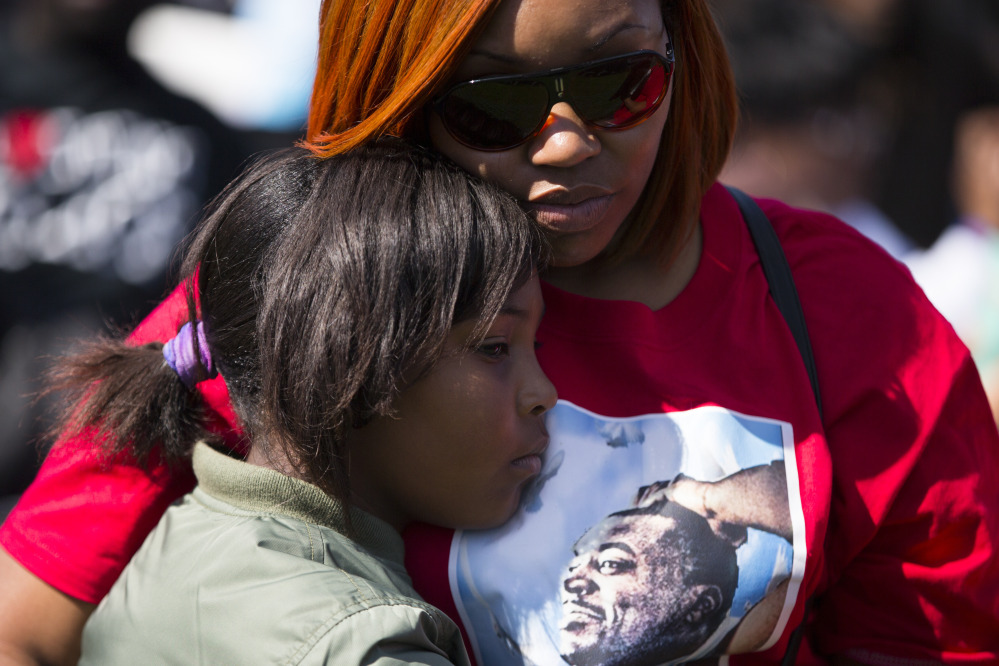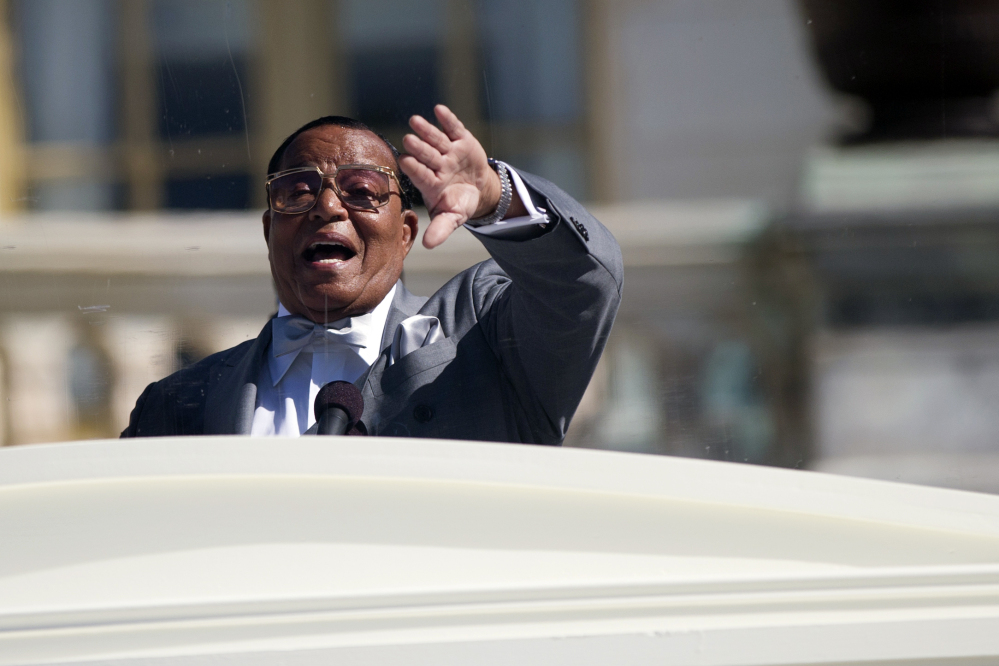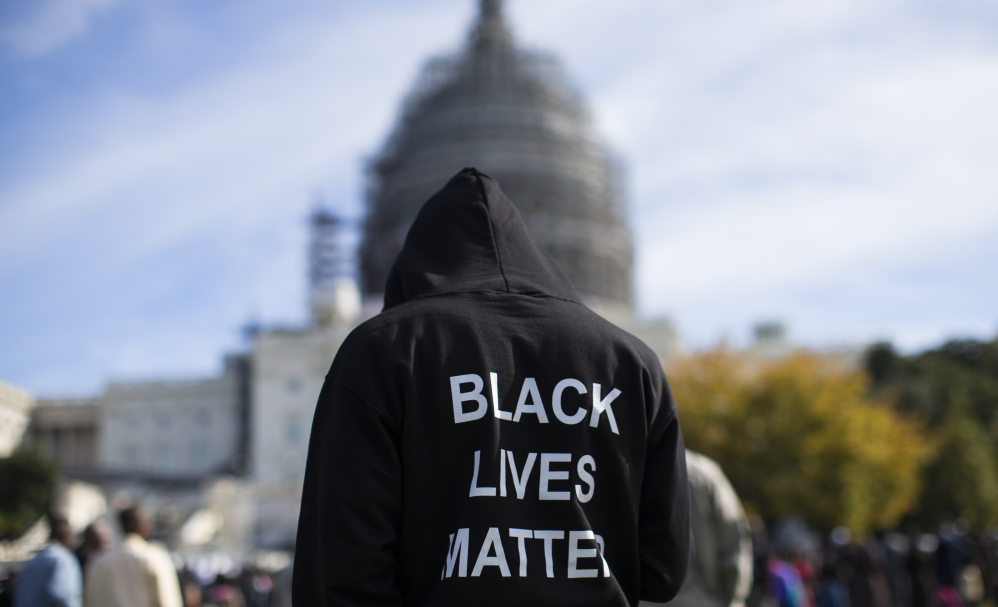WASHINGTON — Black men and women joyously returned to the National Mall on Saturday for the 20th anniversary of the Million Man March, calling for changes in policing and in black communities amid an atmosphere almost like a family reunion.
Waving flags, carrying signs and listening to speeches and songs, people mingled as they wove their way through security barricades and around loudspeakers and souvenir vendors at the U.S. Capitol and down the Mall on a sunny, breezy day.
For some, it was a return to Washington after the Million Man March on Oct. 16, 1995, and a chance to expose their children to the same positive experience the first march represented to them.
“This is a very special moment for me. Twenty years ago, I was by myself,” said Joey Davis, 47, of Detroit, who was setting up chairs for his family near the Capitol’s reflecting pool. “And 20 years later, I come back with my wife and five children. And so I like to think that over the last 20 years I’ve been doing my part in keeping the promise of the spirit of the original Million Man March.”
Nation of Islam leader Louis Farrakhan, who spearheaded the original march, called the anniversary gathering the “Justice or Else” march. Many speakers asked the crowd to chant that slogan during the day.
Farrakhan, in a wide-ranging speech that lasted for more than two hours, called for more responsibility in the black community for inner-city killings and for the government to investigate recent high-profile killings of unarmed African-American men and women.
“There must come a time when we say enough is enough,” the 82-year-old Farrakhan said.
Attention has been focused on the deaths of unarmed black men since the shootings of 17-year-old Trayvon Martin in 2012 in Florida and 18-year-old Michael Brown in 2014 in Ferguson, Missouri. Deaths of unarmed black males at the hands of law enforcement officers have inspired protests under the “Black Lives Matter” moniker around the country.
Members of their families and the family of Sandra Bland, an African-American woman found hanged in a Texas jail after a traffic stop, spoke from the main stage.
The original march brought hundreds of thousands to Washington to pledge to improve their lives, their families and their communities. Women, whites and other minorities were not invited to the original march, but organizers welcomed all Saturday.
President Obama, who attended the first Million Man March, was in California.
Saturday’s march brought out young and old, including some veterans of the 1963 March on Washington. Nate Smith of Oakland, California, who was on the Mall for Martin Luther King’s “I Have a Dream” speech and the 1995 Million Man March, returned once again.
“It’s something that I need to do,” the 70-year-old said. “It’s like a pilgrimage for me, and something I think all black people need to do.”
The National Park Service estimated the attendance at the 1995 march to be around 400,000, but subsequent counts by private organizations put the number at 800,000 or higher. The National Park Service has refused to give crowd estimates on Mall activities since.
The Rev. Jamal Bryant of the Empowerment Temple AME Church in Baltimore, who helped organize the anniversary march, said there were almost 1 million attendees.
Copy the Story LinkSend questions/comments to the editors.





Success. Please wait for the page to reload. If the page does not reload within 5 seconds, please refresh the page.
Enter your email and password to access comments.
Hi, to comment on stories you must . This profile is in addition to your subscription and website login.
Already have a commenting profile? .
Invalid username/password.
Please check your email to confirm and complete your registration.
Only subscribers are eligible to post comments. Please subscribe or login first for digital access. Here’s why.
Use the form below to reset your password. When you've submitted your account email, we will send an email with a reset code.